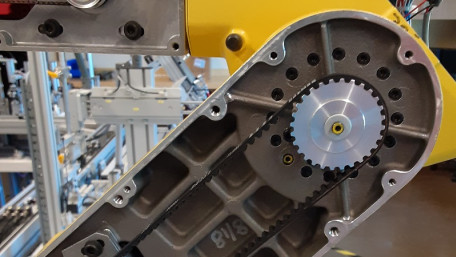
Across every make and model of articulated robot, certain maintenance procedures must be followed as motion occurs. Failure to do so can often result in…
Across every make and model of articulated robot, certain maintenance procedures must be followed as motion occurs. Failure to do so can often result in warnings, alarms, and even failure.
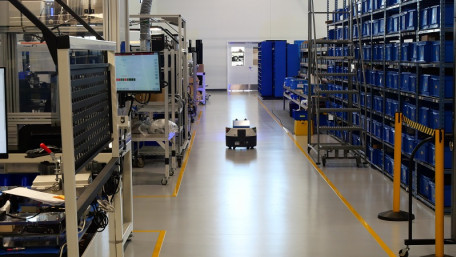
Every element of your life–your food, your car, your house–everything is made with processes that use sensors. Join…
Every element of your life–your food, your car, your house–everything is made with processes that use sensors. Join us as we visit the SICK facility, where many of these sensing products are made.
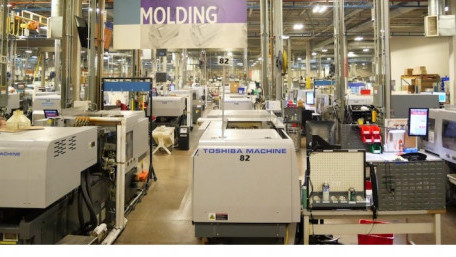
Creating low-volume, custom batches of parts is one of the costliest and time-intensive manufacturing paths. Join us for…
Creating low-volume, custom batches of parts is one of the costliest and time-intensive manufacturing paths. Join us for a tour and learn how Protolabs "automates the automation" to deliver results.
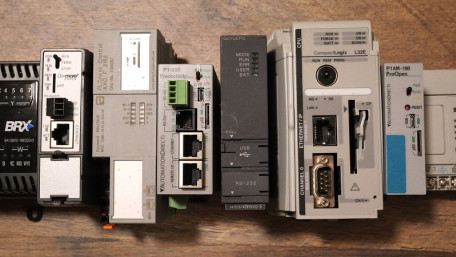
Learn all about the central processing unit (CPU): the built-in module inside the PLC responsible for executing the…
Learn all about the central processing unit (CPU): the built-in module inside the PLC responsible for executing the program and communicating with external devices.
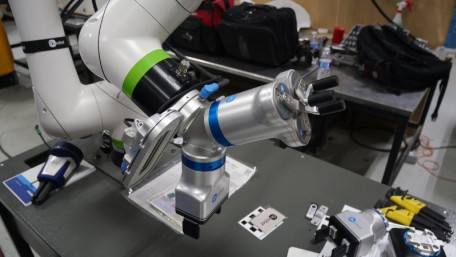
Join Control Automation as we visit Central CA colleges to help install robotic equipment and learn how local industries…
Join Control Automation as we visit Central CA colleges to help install robotic equipment and learn how local industries partner with schools to create exciting opportunities for students.

As commercial and industrial software migrates to ‘cloud-based’ and ‘subscription’ models, what does it mean? How…
As commercial and industrial software migrates to ‘cloud-based’ and ‘subscription’ models, what does it mean? How does it affect the usability and security of critical parts of control infrastructure?

It's important to keep your system up and running without regular intervention. While every system requires maintenance,…
It's important to keep your system up and running without regular intervention. While every system requires maintenance, never overlook the critical importance of tools and training for the operators.
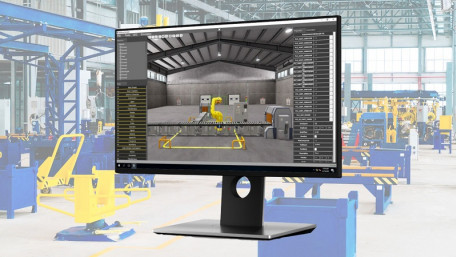
When setting up a system for the first time, the process can seem complex and daunting. However, there are tools…
When setting up a system for the first time, the process can seem complex and daunting. However, there are tools available to make the job much easier before commissioning.
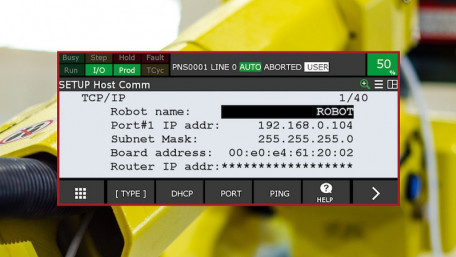
Learn how to set up Ethernet/IP communications, including steps for both the FANUC controller and the Studio 5000…
Learn how to set up Ethernet/IP communications, including steps for both the FANUC controller and the Studio 5000 environment for a Rockwell PLC.
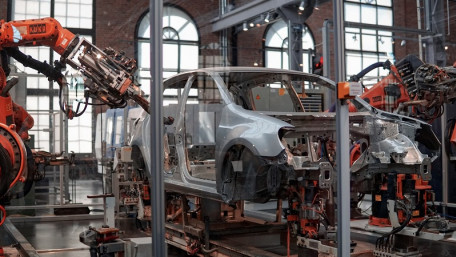
There are multiple methods for mapping inputs and outputs to an industrial robot. In this article, we cover two of the…
There are multiple methods for mapping inputs and outputs to an industrial robot. In this article, we cover two of the most popular methods: letting the robot or the PLC control the I/O signals.
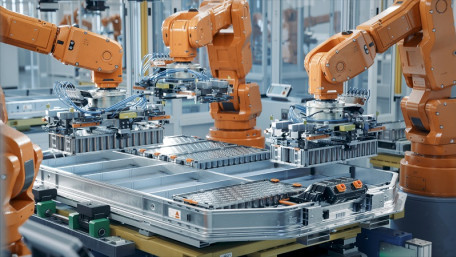
There are a lot of companies considering in-house automation or consulting with integrators for automated systems. But…
There are a lot of companies considering in-house automation or consulting with integrators for automated systems. But where do you start, and how do you even pick a project for automation?
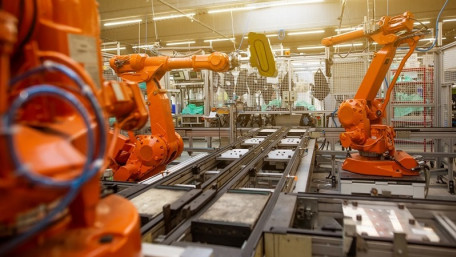
Controlling an industrial robot can be done through the use of well-crafted signal handshakes. Follow along as we dive…
Controlling an industrial robot can be done through the use of well-crafted signal handshakes. Follow along as we dive into several robot-to-PLC communication strategies.
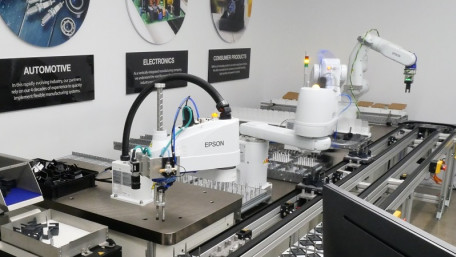
Recently, the Control.com engineering team had the opportunity to visit the R&D demo lab facility for the robotics…
Recently, the Control.com engineering team had the opportunity to visit the R&D demo lab facility for the robotics division of Epson, located in Los Alamitos, CA. Come learn how the magic happens!
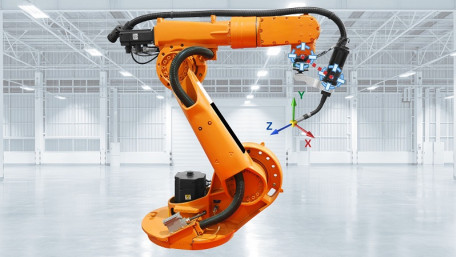
In the field of robotics, designing proper end-of-arm tooling (EoAT) is a crucial step. This article includes critical…
In the field of robotics, designing proper end-of-arm tooling (EoAT) is a crucial step. This article includes critical material and inertia factors to consider when designing EoAT for 6-axis robots.
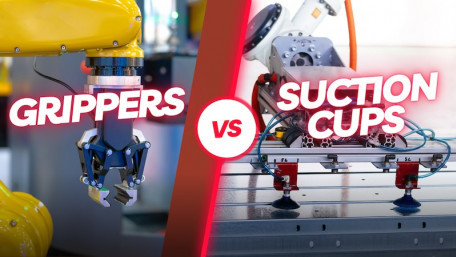
Knowing the difference between the various robotic grippers available makes selecting the most appropriate solution for…
Knowing the difference between the various robotic grippers available makes selecting the most appropriate solution for an automation project less daunting.
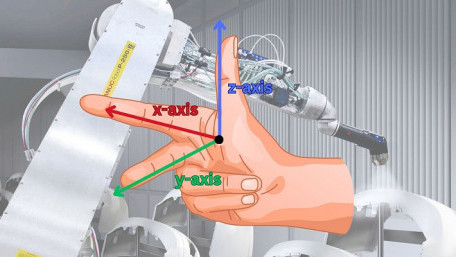
In this article, we'll explore user frames in the context of a 6-axis industrial or collaborative robot. Learn the…
In this article, we'll explore user frames in the context of a 6-axis industrial or collaborative robot. Learn the definition, practical applications, and advantages that user frames have to offer.
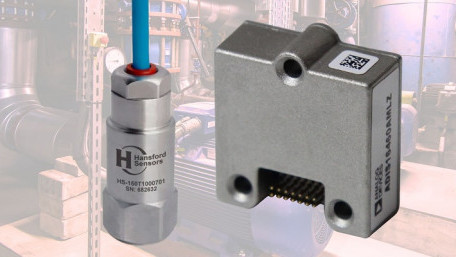
Many sensors, like prox, optical, and ultrasonic, are familiar to control engineers. More and more modern devices are…
Many sensors, like prox, optical, and ultrasonic, are familiar to control engineers. More and more modern devices are incorporating advanced motion profiles requiring motion sensing in many axes.
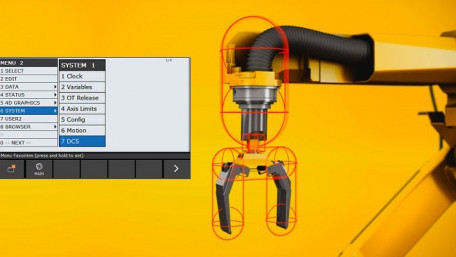
Learn about FANUC’s Dual Check Safety (DCS) system and the various methods, how to configure the DCS parameters, and…
Learn about FANUC’s Dual Check Safety (DCS) system and the various methods, how to configure the DCS parameters, and how to avoid and resolve issues associated with DCS positional alarms.

Traditionally, automation requires a sizable investment and integration risks. RaaS empowers manufacturers to let someone…
Traditionally, automation requires a sizable investment and integration risks. RaaS empowers manufacturers to let someone else adopt the risks in exchange for an hourly or monthly subscription rate.
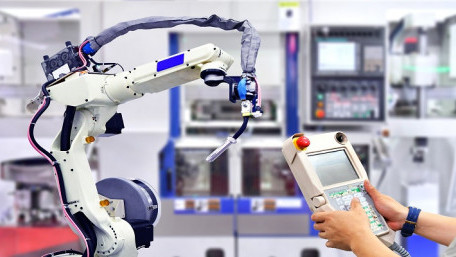
Innovation has a single purpose: to create better solutions, meaning more efficient output with faster development and…
Innovation has a single purpose: to create better solutions, meaning more efficient output with faster development and troubleshooting. It starts with the strategies used to program machines.
